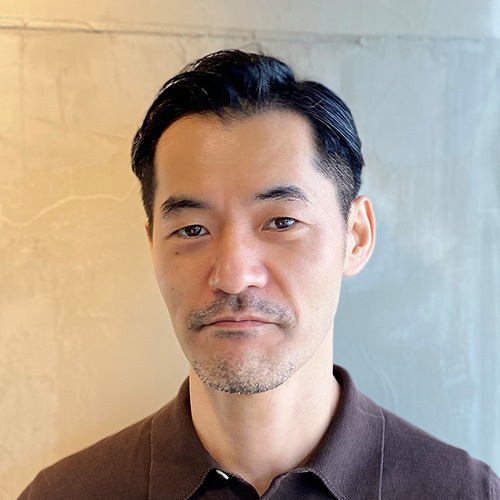Key Person Interview: Background of the Fully Online General Meeting of the Shareholders


In June 2021, the "Act for Partial Amendment, etc. of the Act on Strengthening Industrial Competitiveness" came into effect, enabling companies to host general shareholders' meetings in a "virtual-only" format without a physical venue, which shareholders can attend via the Internet, etc.* In response to this, Z Holdings Corporation (hereinafter "ZHD") hosted its 27th Ordinary General Meeting of the Shareholders on June 17, 2022, fully online. Although such cases are still rare in Japan, ZHD had been preparing the shift for some time by researching operation methods and verifying technologies in anticipation of the enactment of the law. As a result, ZHD was able to respond by amending its Articles of Incorporation as soon as the law was enacted, enabling it to immediately transition its shareholders' meeting fully online in June 2022.
In this interview, we asked Futoshi Ozaki, Head of the Shares Planning Department, Legal Management Division at Z Holdings Corporation, who has been promoting the implementation of online/hybrid style shareholders' meetings since 2020, about the significance of transitioning to fully online, how the shift took place, what things needed particular attention in the first ever event, the knowledges gained, and challenges identified.
*Listed companies that meet certain requirements and approved by the Minister of Economy, Trade and Industry and the Minister of Justice, may host a "general meeting of shareholders without a fixed place" (a virtual-only style general meeting of shareholders).
INDEX
PROFILE

- Futoshi OZAKI, Head of Shares Planning Department, Legal Management Division, Z Holdings Corporation
- Futoshi Ozaki joined Yahoo Japan Corporation (now Z Holdings Corporation) in 2004, engaging mainly in shareholder meetings and Tokyo Stock Exchange disclosures (earnings results, IR releases), etc. while serving as a member of the Ministry of Economy, Trade and Industry's "Study Group on Medium- and Long-term Issues for Further Interactive Shareholder Meeting Processes" in 2018, and a member of Research Department 2 of the Tokyo Association of Shareholder Affairs (Tokyo Kabukon) in 2021. Ozaki led the first online shareholders' meeting (with partial face-to-face attendance) in 2020, and the first fully online shareholders' meeting in 2022 by a major company.
The significance and challenges of transitioning to an online shareholders' meeting
――First of all, please tell us why ZHD is actively promoting a fully online format for its shareholders' meeting. Although such meetings are now technically possible, only a few companies have actually made use of the system so far.
Ozaki: ZHD is a corporate group whose mission is to use the power of information and communications to solve problems of the world. If we use the power of the Internet to address issues in the area of corporate management including the hosting of shareholders' meetings in addition to our businesses, not only will it increase the value of the Internet, but it will also enhance Z Holdings' corporate value. In this sense, we believe it is significant and important to be a pioneer of such fully online meetings.
―― ZHD hosted a hybrid shareholders' meeting in 2020, allowing some shareholders to attend the meeting at a venue, while most attended online. It has also been preparing from an early stage, the realization of a fully online shareholders' meeting. Once again, what was the significance of hosting a fully online shareholders' meeting?
Ozaki: I believe there are two major reasons for hosting the meetings in a fully online format: one is to be free of restrictions of location, and the other is to enable a smooth dialogue.
First, we believe that having no restrictions on location or travel gives a major advantage to our shareholders. By utilizing the Internet, shareholders who live far away from the venue or those who are unable to travel can also attend the meeting, as it involves no time or expenses for travelling. For the company, too, it eliminates time and expenses spent on arranging a physical venue, leading to a significant cutdown in organizing costs.
The other major reason is that a fully online format enables a smooth dialogue. Even before we started hosting a hybrid style meeting in 2020, we had been live-streaming our shareholders' meetings since 2013, and from 2017, had been exploring ways of facilitating dialogues with our shareholders. We hypothesized that online shareholder meetings could provide a potential solution, and had been advancing step by step, by, for example, studying cases of online shareholders' meetings overseas.
Having hosted both hybrid and fully online meetings, we are starting to see more tangible outcomes, including supporting data, of more smooth dialogues with our shareholders.
―― Based on your experience in 2021, what improvements did you make to host a fully online shareholders' meeting?
Ozaki: One improvement we made was to check the online system. We made preparations to ensure that shareholders can access the meeting safely using our vendor's system, including the stability of communication. The other thing we improved was our operation manual. We made full use of diagrams in the manual and paid a lot of attention to details, such as avoiding the use of too much writing, not making the fonts too small, etc.
――There must, of course, be concerns about communication failures. What measures did you have in place?
Ozaki: Since we were completely online, we took a range of measures, including setting up a backup date for the meeting, and multiplexing our servers in case of communication failures.
Towards an online environment which encourages shareholders to ask questions - strengthening dialogues with shareholders
――Going back to fundamentals, what are the things ZHD values in a shareholders' meeting?
Ozaki: One of the things we value most is having a dialogue. The general shareholders' meeting is not just an occasion for reporting the status of management and businesses to shareholders based on laws and regulations, but also a chance for our growth strategy and visions for the future to be shared and understood. The purpose of the meeting is to obtain the shareholders' approval for matters related to our fundamental management, such as the election of directors and amendments to the Articles of Incorporation, and for this, having a dialogue is a prerequisite.
――So, hosting the shareholders' meeting fully online leads to smooth dialogues?
Ozaki: Yes, that's what I think. There are two main reasons for this. First, we are able to answer questions in order of relevance to the purpose of the shareholders' meeting. At a face-to-face shareholders' meeting, the chairperson appoints a shareholder to speak and ask questions on the spot. When doing so, however, we sometimes receive comments or opinions that are not directly related to the purpose of the meeting. On the other hand, at an online shareholders' meeting, questions are submitted via a special website set up for the attending shareholders, so the chairperson can start with questions of highest interest among the shareholders and that are in line with the purpose of the meeting (for example, questions related to resolutions, growth strategies, shareholder returns, or corporate value (i.e., share price) which is a common interest between the company and shareholders). Our shareholders recognized and expressed high satisfaction on this point, and we believe we have been able to facilitate our dialogues.
The second reason is that a fully online format enables questions and responses to be clearer and more efficient. In the online system, we ask for questions to be summarized within 200 Japanese characters, and shareholders have kindly followed this guideline. This has considerably cut down the time required to read out the questions, and as a result, more questions could be answered. For example, at the General Meeting of the Shareholders in June 2019 which took place offline, the Q&A session lasted 49 minutes and a total of 11 questions were addressed. In contrast, at the meeting in 2022 which took place fully online, the Q&A session lasted 34 minutes while a total of 23 questions were answered. Such objective data highlight the improved productivity of the dialogues.
――Are shareholders happy with the 200 characters limit? Is it enough?
Ozaki: We decided to limit the length of questions to 200 Japanese characters through a number of internal discussions when we went hybrid for the June 2020 General Meeting of the Shareholders. We wanted to give it a try then seek input from the shareholders so that we could continue to improve the system. As far as I can see from post-event surveys and conversations on social media up to now, no one said that the length was not enough, and in fact, some provided feedback that the limit is just right. We will continue to ask for input from the shareholders who attend our meetings and explore ways of ensuring smooth dialogues.
Fully disclosing questions, even if they are tough
――It seems evident then, that the quality of dialogue improved by going fully online.
Ozaki: Yes, I believe so. While the General Meeting of the Shareholders is the highest decision-making body of our company, it is nonetheless a meeting which is attended by a very large audience, and we have always explored ways to facilitate dialogues so that they align with the purpose of the meeting.
As I mentioned earlier, in the past, during Q&As, we were asked for example, how to troubleshoot malfunctions in specific services, or were requested to send a congratulatory telegram to a wedding, and much time was spent tending to such personal questions and requests. While we understand that these were genuine feedback from the shareholders asking the questions, a certain number of participants questioned the relevance of some of the topics to the purpose of the meeting.
―― So, you are addressing questions that are of high relevance to the purpose of the shareholders' meeting. Wouldn't that make some shareholders think then, that you only answer questions that are convenient to the company?
Ozaki: We are aware that such concerns are being raised in general in the exploration of virtual meetings, and I would like to emphasize that we do not arbitrarily control the questions. In order to ensure appropriateness and transparency, all questions and answers, including those that could not be addressed during the Q&A, are published after the meeting. I encourage everyone to take a look at the Questions Received from Shareholders for the General Meeting of Shareholders on our "General meeting of shareholders" page.
――Could you give us some examples of the kinds of questions you have received?
Ozaki: The focus of the questions ranged from the content of our businesses to human resource strategies. This year, many of the questions were around the weakness of our stock price, which were tough, as well as on our proposal on remuneration. There were very harsh questions like: "How can you be discussing about remunerations when the stock price is declining this much? You should be reducing your salary."
――Do shareholders feel that it is easier to express honest opinions on the Internet rather than in person?
Ozaki: I think that really depends on each shareholder. I am aware that, not only in our company but also in general discussions around virtual shareholders' meetings, face-to-face formats are thought to convey a stronger sense of urgency to management teams.
However, in the case of our company, there were a minimum of about 1,000 shareholders, sometimes more than 1,700 shareholders attending our offline meetings in the past. We observed that some shareholders were intimidated with the large scale of the venue and spectators, as well as the tense atmosphere, making it difficult for them to speak up or to ask questions even when appointed.
In this respect, the fully online shareholders' meeting provides a less rigid environment, and because shareholders can enter and submit their questions online, they have the chance to carefully review what they have written and make sure it is what they want to say. In other words, we are getting closer to an environment where shareholders can express what they truly want to express.
A fully online format can contribute to the value of the Internet
――Earlier you said that not being restricted by location is one significant reason for going online. Have you seen any changes to, or increase in the number of participants?
Ozaki: The number of so-called "attending shareholders" who can speak and vote online increased sharply from 2020 to 2021, and remained the same level as 2021 in 2022 (Note 1). Meanwhile, the number of shareholders who viewed the General Meeting of the Shareholders via live streaming, which does not require logging in, increased by more than 20% from 2021 to 2022. It seems to suggest that more and more shareholders now wish to exercise their voting rights in advance (via the Internet/in writing) but then also to take part in the meeting by tuning in live (Note 2).
Also, until 2019, our face-to-face shareholders' meeting took place in Tokyo, and in the most recent year, 2019, the percentage of attendees from areas other than the Metropolitan Tokyo, and its surrounding prefectures Kanagawa, Chiba, and Saitama, was less than 10% of the total. With the introduction of online formats, however, this percentage grew steadily, and now has reached around 30% to 40%. The data supports the view that not being restricted by location leads to higher attendance of shareholders (Note 3). We see that the use of the Internet for shareholders' meetings is becoming more common.
We hope that more and more shareholders will participate in the meetings to enhance their understanding of Z Holdings' management and growth strategy.
- (Note 1) [Number of shareholders who attended online] 2020: 92, 2021: 414, 2022: 409
(Note 2) [Number of shareholders who viewed live streaming] 2020: 567, 2021: 1,358, 2022: 1,618
(Note 3) [Percentage of attendees from distant locations] 2019: 8%, 2020: 17%, 2021: 38%, 2022: 34%
――Please also tell us about the responses you are getting from shareholders on the fully online meeting.
Ozaki: In our post-event survey, for our index "realizing smooth dialogues," for example, we received favorable responses on the operation, including the efficiency of the Q&A session. We received positive feedback also on the clarity of the purpose of the questions and the visibility of diverse opinions. On the other hand, we have also received inputs which highlight some issues. Some shareholders thought our responses were vague, while others felt that the meeting was one-way. We would like to listen sincerely to all types of feedback, and make improvements in the meetings to follow.
As a pioneer, ZHD will continue to promote fully online shareholders' meetings and use the power of the Internet to address various issues in the world.
- Date of interview: July 5, 2022 Article published: August 31, 2022
The companies/titles in the article are as of the date of the interview.
Original Japanese article interviewed/edited by Yoko Sueyoshi (Yajirobe Corp)
Please note that the English translation is provided for reference only. The original, official article is in Japanese.